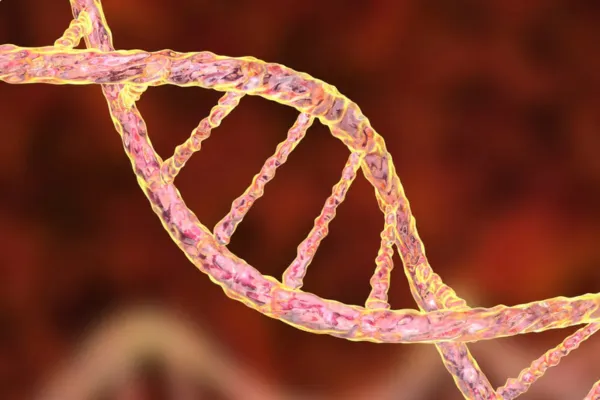
Understanding Genetic Abnormalities in Cancer
Cancer is fundamentally a disease of genes gone awry. While we often think of cancer as a single disease, it's actually a complex collection of diseases characterized by different genetic alterations. Today, let's explore the key genetic players that can drive cancer development and how they contribute to different types of cancers.
The Major Players in Cancer Genetics

The Guardian of the Genome: p53
Perhaps the most famous cancer-related gene is p53, often called "the guardian of the genome." When functioning normally, p53 acts as a crucial tumor suppressor, preventing damaged cells from dividing and potentially becoming cancerous. Mutations in p53 are found in approximately 50% of all cancers, making it one of the most significant players in cancer development.
The Growth Signal Controllers: RAS and EGFR
The RAS family of genes and EGFR (Epidermal Growth Factor Receptor) work together in signaling pathways that control cell growth and division. When these genes are mutated:
RAS proteins become stuck in their "on" position, continuously telling cells to grow and divide
EGFR mutations can lead to constant activation of growth signals, particularly common in lung cancers
Together, they can create a "perfect storm" of uncontrolled cell growth
The Breast Cancer Connection: BRCA and HER2/neu
Breast cancer often involves several key genetic players:
BRCA1 and BRCA2 mutations are famous for increasing breast cancer risk
HER2/neu amplification occurs in about 30% of breast cancers
PI3K pathway alterations frequently appear in breast cancer development
The Immortality Factor: hTERT
One fascinating aspect of cancer genetics involves telomeres and the hTERT gene. While most normal cells have limited division potential, cancer cells often activate hTERT to:
Maintain telomere length
Enable unlimited cell division
Achieve cellular immortality
How Different Cancers Show Different Patterns
Different types of cancers tend to show distinct patterns of genetic alterations:
Colorectal Cancer
Often involves mutations in:
APC (adenomatous polyposis coli)
KRAS
p53
SMAD4
Lung Cancer
Frequently shows:
EGFR mutations
ALK rearrangements
KRAS mutations
p53 alterations
Breast Cancer
Commonly involves:
BRCA1/2 mutations
HER2 amplification
PI3K pathway alterations
p53 mutations
The Role of Cell Death Regulation
Several genes play crucial roles in regulating cell death (apoptosis):
BCL-2 prevents cell death when expressed normally
MYC influences both cell division and death pathways
Mutations in these genes can allow damaged cells to survive when they should die
Impact on Treatment
Understanding these genetic alterations has revolutionized cancer treatment through:
Targeted therapies designed for specific mutations
Personalized medicine approaches based on genetic profiles
Better prediction of treatment responses
Development of new therapeutic strategies
Looking to the Future
As our understanding of cancer genetics grows, we're seeing:
More sophisticated genetic testing methods
Better prediction of cancer risk
More targeted treatment options
Improved patient outcomes
The field of cancer genetics continues to evolve, with new discoveries regularly reshaping our understanding of these diseases. This knowledge is crucial for developing more effective treatments and, ultimately, better outcomes for cancer patients.
UK Cancer Screening Services
For UK residents, UK Medicare Screening Clinic provides comprehensive cancer screening services that incorporate the latest understanding of cancer genetics. Their services include:
Genetic risk assessment and counseling
Advanced molecular testing for various cancer markers
Comprehensive screening programs for different cancer types
Regular monitoring for high-risk individuals
Integration of genetic findings with personalized prevention strategies
These screening services can help identify cancer risk factors early, enabling preventive measures and early intervention when necessary. UK Medicare Screening Clinic's approach combines cutting-edge genetic knowledge with practical screening applications to provide comprehensive cancer prevention services.
To learn more about cancer screening services or to schedule an appointment, you can visit their website at www.ukmedicarescreening.com or contact UK Medicare Screening Clinic's specialists who can guide you through the available screening options based on your personal and family history.